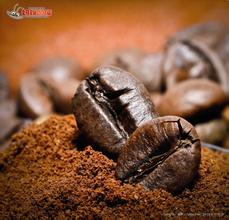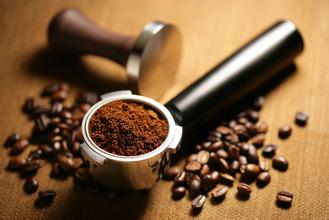The origin of Kopi Luwak is the practice of civet coffee.
Kopi Luwak is produced by the feces of Indonesian coconut cats (a kind of civet) as raw materials, so it is called "Kopi Luwak". This kind of animal mainly feeds on coffee beans. After completing fermentation in the coconut cat's stomach, it destroys protein, produces short peptides and more free amino acids, reduces the bitterness of coffee, and then excretes feces as the main raw material. Because coffee beans cannot be digested, they are excreted and Kopi Luwak is made after washing and baking. Coffee critic Chris Rubin said, "the aroma of the wine is so rich and strong, and the coffee is incredibly rich, almost like syrup." Its thickness and chocolate taste, and lingering on the tongue for a long time, pure aftertaste. "
Coconut cats are omnivores. In addition to eating seeds, they also eat insects, snakes, birds, amphibians and reptiles, so the feces discharged by really wild coconut cats will be mixed with all kinds of substances. Local farmers in Indonesia catch coconut cats to raise them and feed coffee beans to make them. But after all, there are some differences between artificial cultivation and natural ones.
Musk cat coffee
Civet Coffee (5)
In the coffee industry, Kopi Luwak is widely regarded as a product with novelty as the selling point. "the consensus in the industry is that it tastes bad," said the American Special Coffee Association (Specialty Coffee Association of America,SCAA). SCAA quoted a coffee expert as saying: "obviously, the selling point of Kopi Luwak is its story, not its quality." Using the SCAA standard, Kopi Luwak scored two points lower than the lowest score for the other three types of coffee. It can be speculated that the processing of Kopi Luwak diluted the high-quality acidity and taste and made the taste more insipid. Of course, many people also seem to regard this insipid taste as the advantage of this kind of coffee. "
Tim Carman, a food columnist for the Washington Post, commented on Kopi Luwak sold in the United States and concluded that "it tastes like Folger coffee." It's like rotten, lifeless taste. It's like petrified dinosaur shit in bath water. I can't finish it. "
The civet likes to choose the most ripe, sweet, juicy coffee fruit in the coffee tree as food. The coffee fruit passes through its digestive system, and only the pulp on the outside of the fruit is digested, and the hard coffee beans are then excreted intact by the civet's digestive system.
In this way, in the process of digestion, the coffee beans have an unparalleled magical change, the flavor tends to be unique, the taste is particularly mellow, and the rich, round and sweet taste is also incomparable to other coffee beans. This is due to the fact that the civets' digestive system destroys the protein in the coffee beans, making the coffee much less bitter and increasing the round taste of the coffee beans.
Because wild civets are obviously better at selecting good coffee fruits, this kind of coffee has outstanding characteristics.
Coffee source editor
Muscat Coffee (Kopi Luwak), Kopi (Indonesian, coffee), Luwak refers to a kind of arboreal wild animal commonly known as "civet" in Indonesia.
In Sumatra, Indonesia, locals call civets Musang rather than the commonly used Luwak,Kopi Musang is civet coffee, commonly known as "Kopi Luwak". -- from "Coffee Fine Science"
Kopi Luwak, produced in Indonesia, is one of the most expensive coffee in the world. Indonesia grows a lot of coffee crops, including wild animals called civets, omnivores, pointed mouths and dark gray fur. The favorite food is fresh coffee beans, which are fermented and digested in the body and eventually excreted by cats. Feces are grains of coffee beans and become the most expensive feces in the world. Because the quantity is very rare, so the price is very expensive. Civets are found in Indo-China, India (northeast), Bangladesh, Bhutan, Sikkim, Nepal and Kashmir, but only Sumatran civets, or Indonesian civets, can produce Kopi Luwak.
Musk cat droppings
Musk cat droppings
After processing and baking, Kopi Luwak has become a luxury coffee drink and spread to luxury kingdoms around the world. Local coffee farmers, in pursuit of high profits, bring wild civets home to raise them so that they can produce more Kopi Luwak. However, the Kopi Luwak produced by breeding civets will be much worse in color and taste. Even so, the output of this kind of coffee is still very rare, and it is not affordable for all people who like coffee.
The coffee comes from the excrement of an animal called the civet (commonly known as the civet in Indonesia). Although it comes from smelly poop, it is full of sweetness and a burst of indescribable sweetness. This wild musk cat likes to eat fat and pulpy coffee fruits, but the hard hard nuts (raw beans) are indigestible and are excreted with feces. After being cleaned, they become Kopi Luwak coffee raw beans! So many people call it "cat shit" coffee. The Indonesians found that the coffee beans fermented by the civets' intestines and stomach are particularly thick and mellow, so they collect the civets' feces, sift out the coffee beans and brew them to drink. Because the yield is rare and the fermentation process is unique, the flavor is very different from that of ordinary coffee. Traditionally, coffee fruit is transparent.
Musk cat
Musk cat
After washing or sun treatment, the peel, pulp and sheep skin are removed, and finally the coffee beans are removed. However, Luwak uses the method of natural fermentation in the body to remove the coffee beans, so it has a special flavor.
It is said that coffee farmers in early Indonesia regarded civet cats that ate ripe coffee fruits as mortal enemies, but at some point someone began to think of picking coffee beans from the civet droppings to make coffee with unique flavor. Coffee experts everywhere have tried and were amazed. Since then, local farmers spend a lot of time collecting civet droppings in the forest every day during the coffee ripening season.
Development process editor
The company M.P. Mountanos, which first introduced Kopi Luwak coffee to the United States, pointed out that at first, when I heard about this kind of coffee fermented in the body, I thought it was a joke in the industry, but I didn't take it seriously. later, I saw a special report on Kopi Luwak in National Geographic Magazine and became interested in her. it took seven years to find a stable source of supply and began to introduce a small amount to the United States. What's the flavor of this coffee? Generally speaking, Indonesian coffee has the taste of mud and traditional Chinese medicine, and its consistency is the highest in all continents, but Kopi Luwak has a stronger taste and consistency, which is almost close to syrup, and its flavor is very special. If you don't like Indonesian coffee in the first place, you must hate Kopi Luwak even more. If you prefer the fishy smell of aged beans, you may love this alternative coffee. Experts who have tasted Kopi Luwak have put forward a polarized evaluation, and some people compare it to the best coffee in the world. Although it is the best, whether you are willing to spend thousands of yuan to drink a cup of Kopi Luwak is your personal preference.

Important Notice :
前街咖啡 FrontStreet Coffee has moved to new addredd:
FrontStreet Coffee Address: 315,Donghua East Road,GuangZhou
Tel:020 38364473
- Prev

Panamanian Emerald Manor Bean what kind of coffee is there in Bali?
Civet coffee comes from Indonesia, Vietnam, the Philippines and China. How exactly is civet coffee made? The coffee fruit passes through the civet's digestive system, only the pulp of the fruit appearance is digested, and the coffee beans are excreted intact. In general, coffee is washed or insolated to remove the peel, pulp and sheepskin of the coffee.
- Next

Which is more expensive, top Kopi Luwak civet coffee or Blue Mountain coffee?
Kopi Luwak is the least produced coffee in the world. A bag of 50 grams of coffee beans costs more than 800 yuan and can only make 5 cups of coffee. In other words, the price of a cup is about 200 yuan. The civet coffee gift box produced by Fireboat Group, the largest coffee supplier in Indonesia, sells for 600 yuan and 50g in Shangpin Cafe with extremely luxurious packaging, while the asking price for 100g is more than 2000 yuan.
Related
- Does Rose Summer choose Blue, Green or Red? Detailed explanation of Rose Summer Coffee plots and Classification in Panamanian Jade Manor
- What is the difference between the origin, producing area, processing plant, cooperative and manor of coffee beans?
- How fine does the espresso powder fit? how to grind the espresso?
- Sca coffee roasting degree color card coffee roasting degree 8 roasting color values what do you mean?
- The practice of lattes: how to make lattes at home
- Introduction to Indonesian Fine Coffee beans-- Java Coffee producing area of Indonesian Arabica Coffee
- How much will the flavor of light and medium roasted rose summer be expressed? What baking level is rose summer suitable for?
- Introduction to the characteristics of washing, sun-drying or wet-planing coffee commonly used in Mantenin, Indonesia
- Price characteristics of Arabica Coffee Bean Starbucks introduction to Manning Coffee Bean Taste producing area Variety Manor
- What is the authentic Yega flavor? What are the flavor characteristics of the really excellent Yejasuffi coffee beans?

